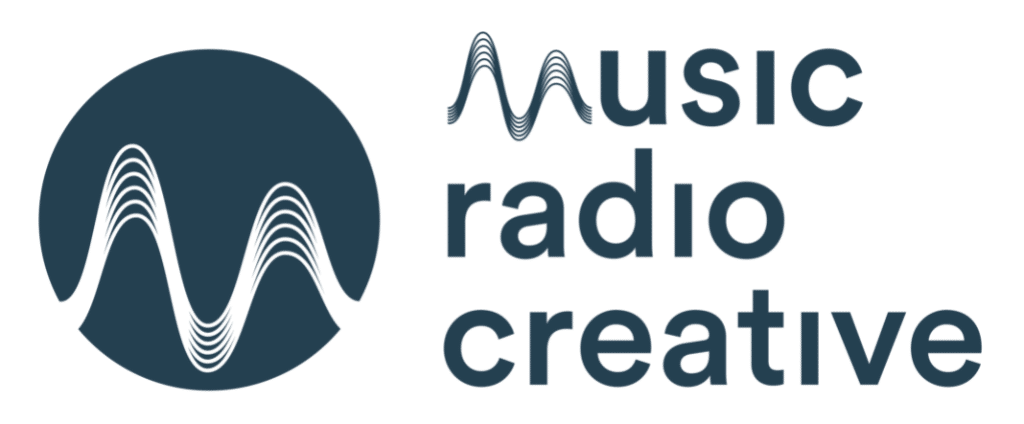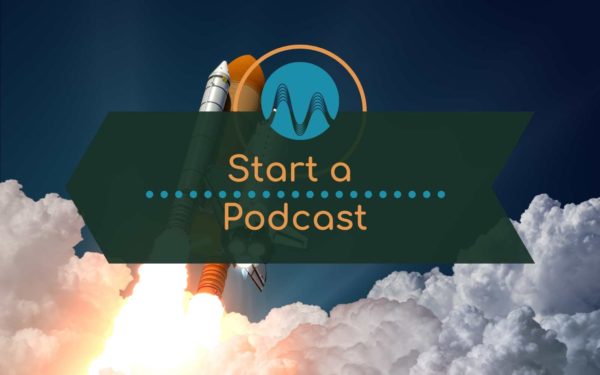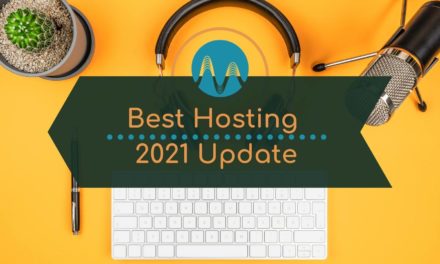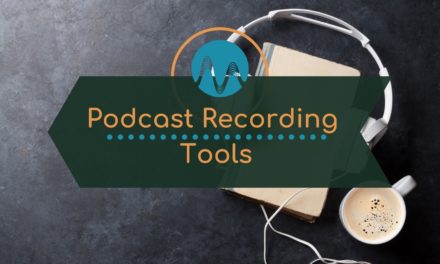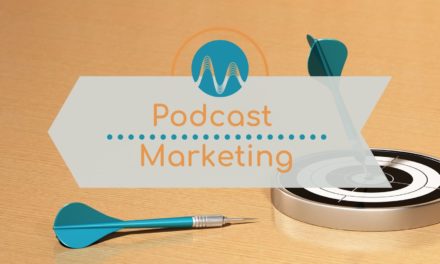So you think it’s a good idea to start a podcast? You would like to launch and make it a big success?
The podcasting industry has exploded in the past few years. For a good reason: they’re free to listen to on a number of platforms, and there’s a podcast on just about any topic that you could think of. Thanks to the audio only nature of podcasts – they are easy to listen to. You can multitask by listening to your favorite hosts through your headphones whilst you travel, cook or clean.
More and more individuals and companies are starting their own podcasts too. Often inspired by the most successful shows that currently dominate the podcast charts. And it’s a no surprise when the global podcasting market size is valued at around 9.28 billion US dollars (yes, that’s billions, not millions)!
Here are some top tips to help you successfully launch your podcast.
Start a Podcast: Brainstorm Topics and Ideas
When deciding to start a podcast, the difficulty is often in knowing exactly what it is that you would like to talk about. This is where brainstorming is the key. Grab a pen and paper. Open up the notes app in your phone. Write down everything that you are passionate and knowledgeable about. Once you’ve narrowed down your topics, choose one that will be the central focus of your podcast. Add a couple of additional ‘sub’ topics to intermittently cover throughout your episodes. For example, if you’re an avid gym goer, a fitness-based podcast could be a perfect fit (no pun intended!).
Buy the Essential Equipment
The minimum equipment required to produce a solo podcast episode is a microphone, a laptop or a phone, and the editing software. Does your podcast has multiple hosts? Do you plan on featuring guests on your show? You will need an XLR microphone and ability to work inside an audio interface.
There are countless types of microphones available, ranging from basic to high end. Should you wish to record a podcast on your iPhone, you can buy microphones for those too. It is not necessary to spend your life savings on the newest recording equipment. Although having good sound quality is imperative for a podcast. You may want to check our suggestions on the ultimate podcast recording equipment.
Beginners Setup?
If you are looking to just get started, then a USB microphone may be just what you need. We have covered in detail various USB microphone options available on the market and our overall winner was the Beyerdynamic FOX. Provides very decent quality audio in all tested environments, costs approx. $179. It will likely serve you well for many years to come. As it is a USB microphone at this stage that will be all you need to get started with recording. Later on in the game you may want to expand to audio interface and an XLR microphone setup. In reality however, for a complete beginner a USB microphone is all that’s needed.
Remember – hearing a clear audio will enhance listener experience and keep them coming back for more. Do not think that savings made on the equipment are worth having! As a general rule the more you spend on the recording setup, the better your podcast will sound.

Recording and Editing Your Podcast
Podcast Host
The first step to getting your podcast online is choosing a podcast host. This enables you to store and distribute your content by providing an RSS feed (a list of your episodes) that is submitted to various podcast platforms. Many hosts offer a free service, with options to upgrade to paid plans.
Recording Environment
Recording is arguably the most enjoyable, but can be the most difficult part of the process. Aside from having a decent microphone, your environment also contributes to the sound quality of your recordings. Ensure you are in a quiet area of your home or studio. Ideally you want very little distraction and as little background noise as possible. Also try to avoid recording in a room where sound will easily echo (empty rooms, near windows etc are a big no no).
Recording Software
Recording and editing software programs include Audacity, GarageBand, and Adobe Audition. You can also choose a recording app to help with capturing the audio and video for you.
Recording Tips
- When recording, place your microphone at mouth height, and sit a couple of inches back from it to avoid a fussy sounding recording.
- Test the sound levels.
- Adjust the microphone or your body until you reach your desired volume level.
- Even though sound levels can be adjusted in post production, it’s generally recommended to try and get the recording as good as it can be before it reaches the post production process.
- Speak clearly, and do not rush what you have to say.
- Having some notes in front of you whilst you record is a great way to ensure that your episode flows smoothly, and covers everything you had originally planned.
- Remember that if you mess up, you can always edit it out.
Launch Your Podcast
To start your podcast with a loud bang, make sure to have at least three episodes available. This will give your audience a great taste of your podcast, and give them more content to respond to. And if a listener loves your first episode, but then has to wait until next week to hear more, they might not be very happy.
Apple Podcasts, Spotify and other podcast aggregates value audience retention: longer listen times indicate higher enjoyment of your show, so it will be pushed out to more listeners. The more episodes you have available on the launch day, the more likely it is that the audience will continue listening to your podcast for longer.

Promote Your Podcast
Prior to releasing your first few episodes, promotion is essential to building the ‘hype’ up around your new show. This is a key to starting a podcast and making it a success. Due to the lack of ‘discovery’ search options on podcast platforms, there are very few ways in which the new listeners can be reached. This means self-promotion is crucial for any podcast to grow. Here are some ideas for you to get started:
- Social media is one of the best ways to increase traffic and drive listeners towards your podcast. Popular platforms include Instagram, Facebook and YouTube. All of these provide an online space to interact with not only your listeners, but also other podcasters across the world.
- Join online communities to interact with fellow podcasters, and arrange collaboration episodes or cross promotions as methods of introducing your show to brand new ears.
- If you have an existing email list of your customers, fans or followers – do not be shy and introduce them to your brand new podcast!
Try our top tips for using social media to promote your podcast to get further ideas.
The podcasting industry is still in its early days, and will only continue to grow. Following the above steps will ensure your new show starts off strong. Good luck and leave a comment below if you have any further tips that could benefit those who want to start their own podcast this year.
